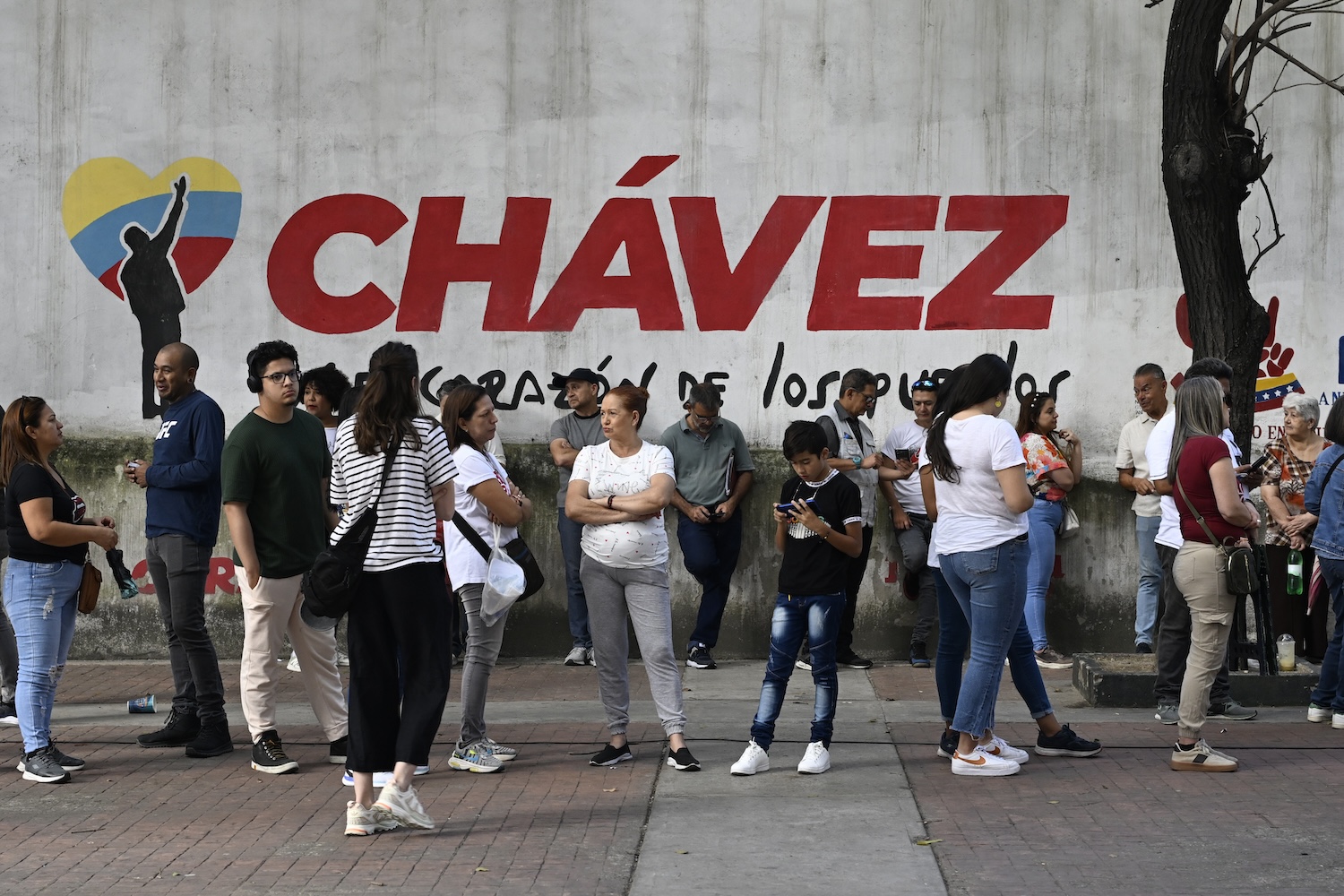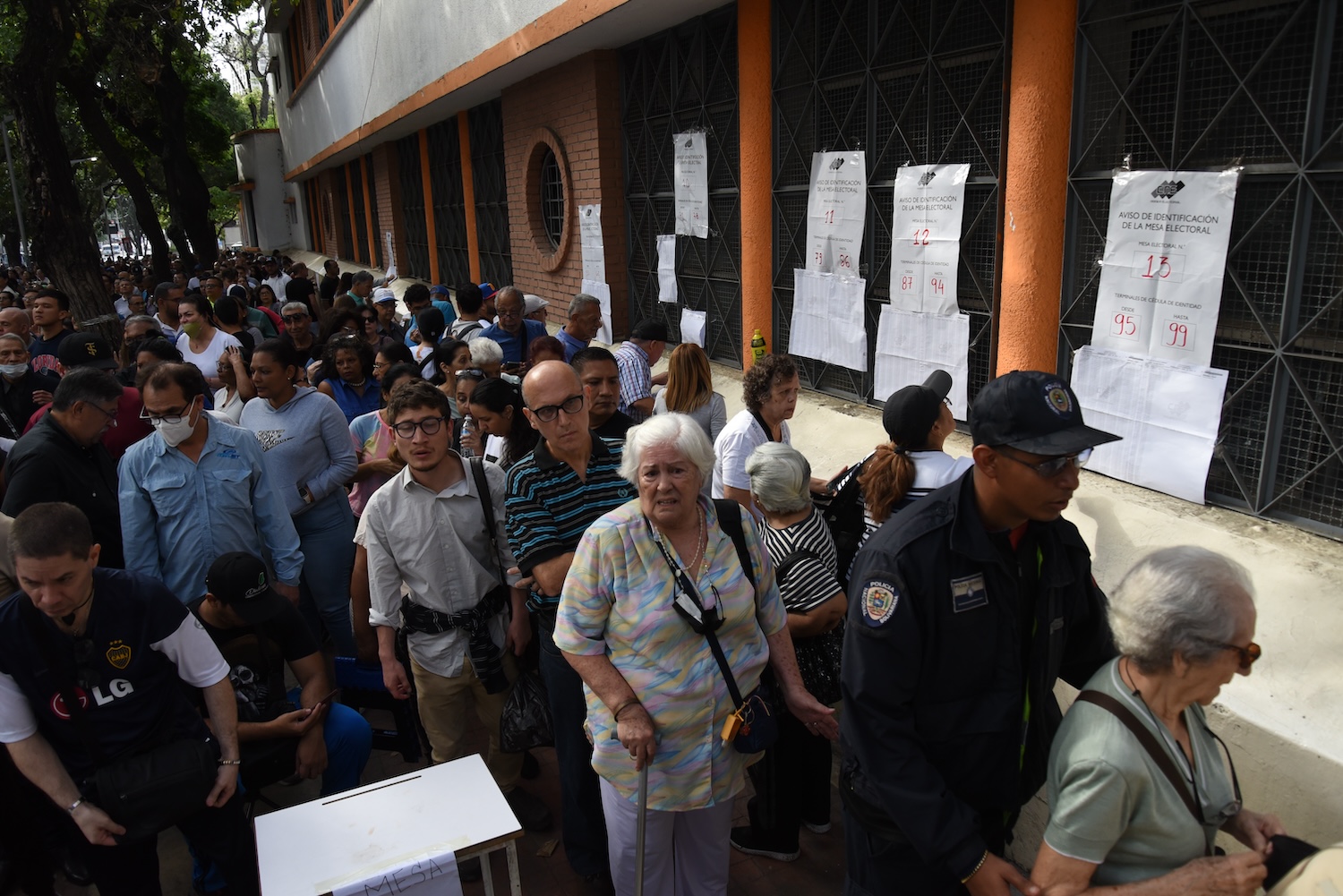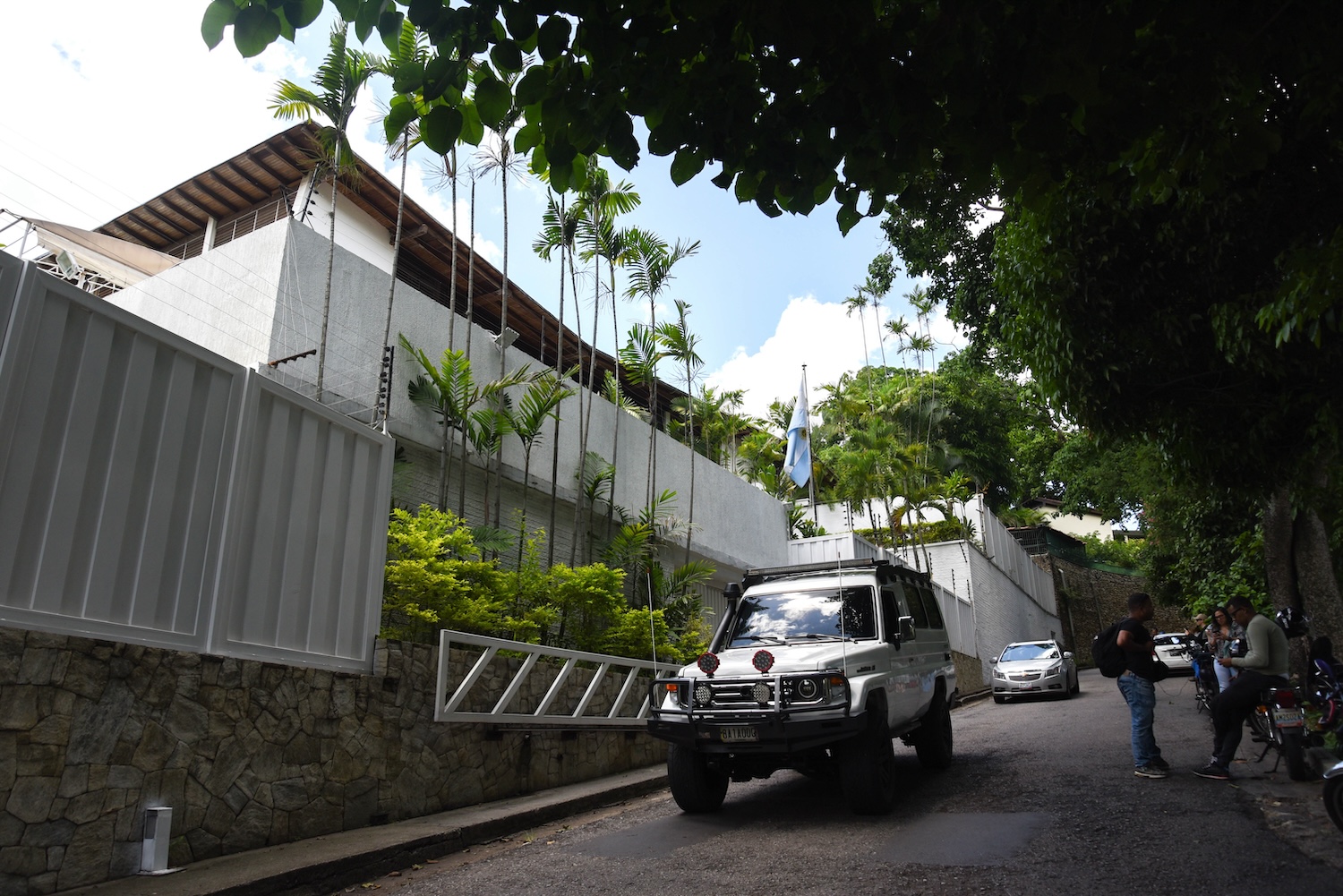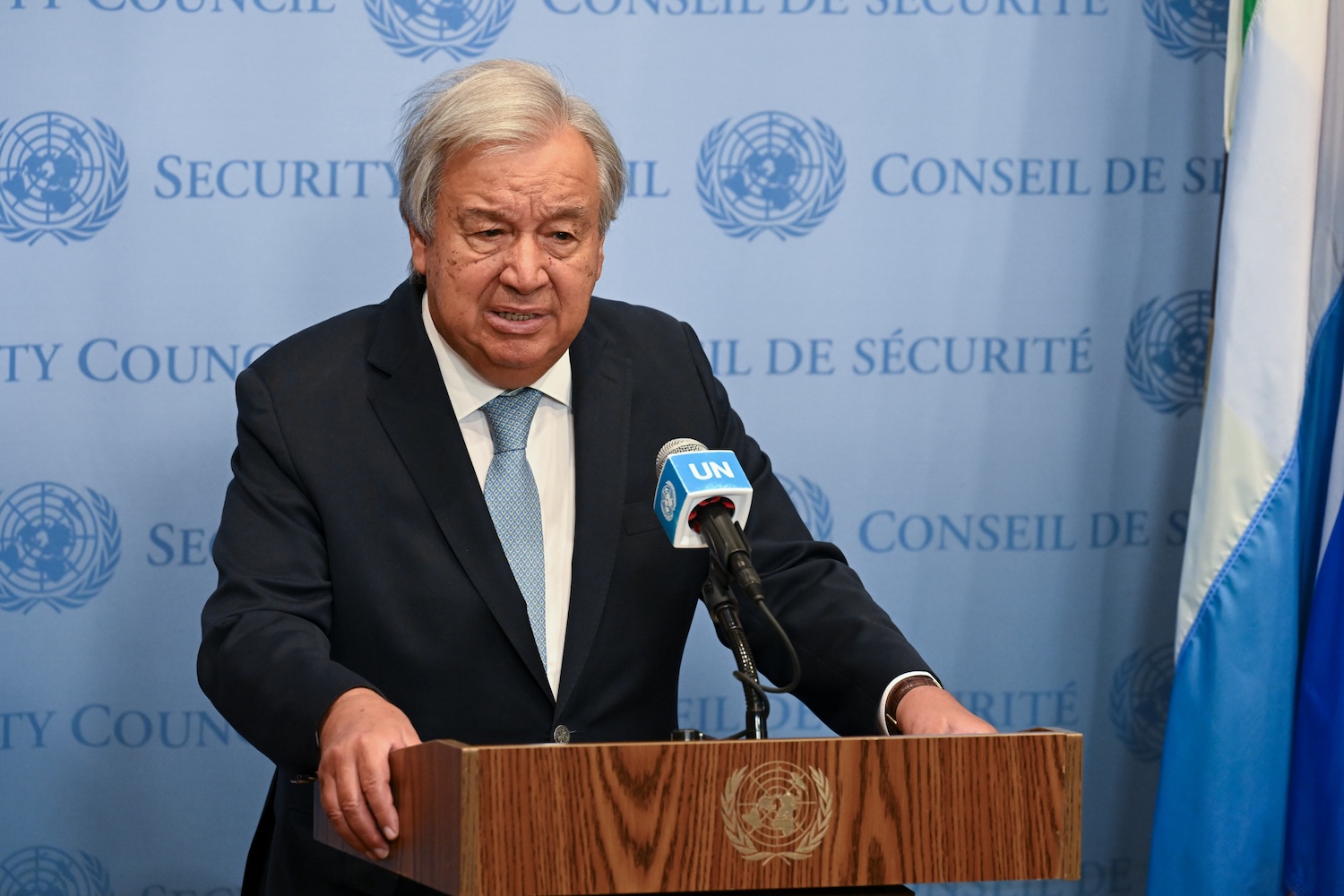United Nations also trying to destabilize Venezuela
Aram Aharonian
Last Thursday, the UN Security Council addressed the situation in Venezuela during a session requested by Ecuador, with the excuse of increasing tensions that could lead to a direct threat to regional stability and international security and with the crutch of defending democracy and human rights.
Washington’s objective is to produce a declaration at the UN that will later serve to appoint an electoral verification mission, over the Venezuelan institutions and sovereignty. Its interest is to prepare a dossier to validate the idea that there is a situation in Venezuela that requires foreign intervention.
Beyond the announced individual sanctions, oil, the backbone of the Venezuelan economy, continues to be the central issue. Washington has not yet shown all its cards in this area and it remains to be seen what its final decision will be.

Meanwhile, Venezuela’s oil exports reached their highest level in four years in August. A Wall Street Journal report notes that “Chevron wants to keep the oil flowing in Venezuela after the election. Behind the scenes, the oil company’s message to the White House is that it should stay in Venezuela, even if Maduro remains,” it says.
In the context following the July 28 presidential elections, the White House could redefine its objectives and take a path focused on diplomacy, cooperation and dialogue, rather than an approach based on increased oil and financial sanctions or intervention through violent action. The country has been left on the brink of a critical situation as no agreement was reached in Doha or Barbados that would contemplate post-poll scenarios and precisely establish coexistence clauses.
The lesson is clear: holding elections without prior lifting of sanctions, without a long-term coexistence agreement between Washington and Caracas and without a realistic negotiation approach has turned what should have been the final stage of an agreement into a trap that has aggravated the problems.
Looking ahead, any attempt at an agreement in the current context would have to aim at building consensus in three fundamental areas: a lasting geopolitical treaty between Venezuela and the United States, a democratic pact of coexistence between internal political forces and a compromise in the economic sphere that not only dismantles the structures of rentierism, but also boosts investment and the creation of sustainable jobs for future generations.

Cannon fodder
The hegemonic press likes to spread allegations about the use of children as a shield to promote acts of violence in political demonstrations. Anahí Arizmendi, president of Fundación para Niños, Niñas y Adolescentes de Caracas had already filed in May 2017 before the Public Prosecutor’s Office (MP), a hundred individual and collective complaints highlighting the use of infants for acts of vandalism and terrorism by the opposition.
Arizmendi recalled that with the so-called children of “La Resistencia” it was about “using children in vulnerable situations, who were given drugs and money so that they would be at the front organizing violent actions, but above all so that they would be cannon fodder”. He pointed out that the same opposition is summoning young people to integrate the “comanditos” and that since 2015 it has promoted sanctions against Venezuela.
The Minister of the Interior, Diosdado Cabello, accused an extremist sector of the opposition of summoning a number of young people using the same script of April 11, 2002 (coup against Hugo Chávez):“ the difference was that at that time they put snipers, now they put hired killers in their demonstrations to assassinate people, and say that it was the fault of the Government”.
Brazil, Argentina and the embassy in Caracas
Lula da Silva is disappointed with Nicolás Maduro and more than irritated with Javier Milei. The Brazilian president is upset with his Venezuelan colleague and “partner” while analyzing the diplomatic tension after the revocation of the authorization for Brazil to represent Argentine interests in Caracas.
The anger is not less with his colleague, and never treated as “partner”, Argentine president Javier Milei, who from Buenos Aires attacked again the petista leader in spite of the efforts to take care of the official residence in Venezuela.
Lula’s vocation for agreement has a limit called Javier Milei. Last week, during the negotiations to facilitate the dialogue between the Venezuelan government and the opposition, and to solve the crisis unleashed by the prohibition to represent Argentine interests in Caracas, the news reached the Planalto that Milei had described Lula as a “tyrant” for endorsing the blocking of the social network X determined by the Supreme Federal Court, reports Dario Pignotti from Brasilia.

Maneuvering at the United Nations
It is feared that the UN General Assembly will orchestrate an attempt to weaken Venezuelan sovereignty under the pretext of “international security”. At the same time, this strategy serves another purpose: to divert the attention of the General Assembly from international criticism of Israel’s actions in Gaza, redirecting the focus to Venezuela.
What is really at stake is not only the fate of Venezuela, but the very institutionality of the United Nations and the principle of non-intervention, the cornerstone of its founding Charter. The question is: how far is Washington willing to go and who will be on its side? asks political scientist Leopoldo Puchi.
These actions have been preceded by a series of actions that have included OAS resolutions and pressure on regional blocs such as the Caribbean Community (Caricom).
“In a rude and vulgar manner, Secretary Blinken intends to announce, via social networks, as usual, a coup d’état in Venezuela”, warned Venezuelan Foreign Minister Yván Gil, after his plans were pulverized ‘through the vote and with civic-military-police unity and mobilization’.
A few days before, the Uruguayan President, Luis Lacalle Pou, had also expressed his intention to address the Venezuelan issue in his speech at the UN General Assembly, knowing the little credibility of any resolution within the Organization of American States (OAS) led by his compatriot Luis Almagro.
This is not a good faith action but a carefully designed effort to justify the continuation of sanctions or even a violent outcome. From the moment the polls closed on July 28, the U.S. State Department began moving its pieces to orchestrate an international consensus on Venezuela, Puchi recalls.

A week after the Venezuelan presidential elections, Secretary of State Antony Blinken called UN Secretary General Antonio Guterres to ask him to get involved in Venezuela’s political situation and support the position Washington had been promoting.
One of the results of these demarches was the publication of the report of the UN Panel of Electoral Experts, a document that, in principle, was supposed to be confidential. It is very likely that Guterres has received another request from the United States to promote that the Venezuelan issue be discussed before the UN General Assembly.
History teaches us – says Puchi – that when the great powers mobilize international opinion and accumulate “evidence” in multilateral forums, they do not do so without a defined objective.
*Uruguayan journalist and communicologist. Master in Integration. Creator and founder of Telesur. President of the Foundation for Latin American Integration (FILA) and director of the Latin American Center for Strategic Analysis (CLAE).
